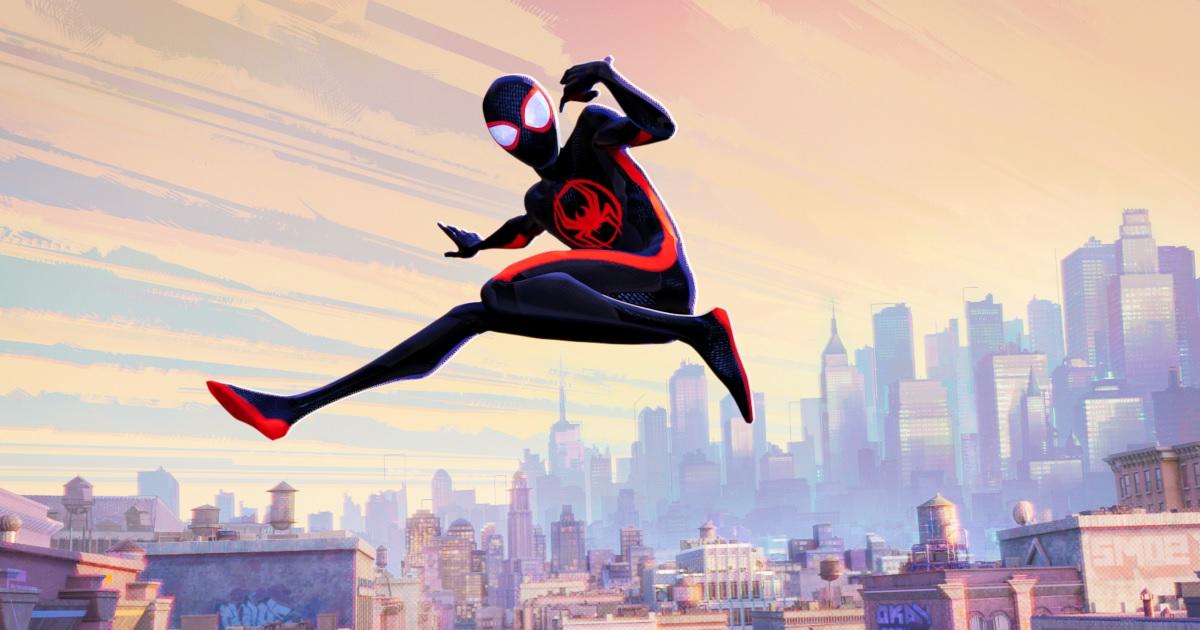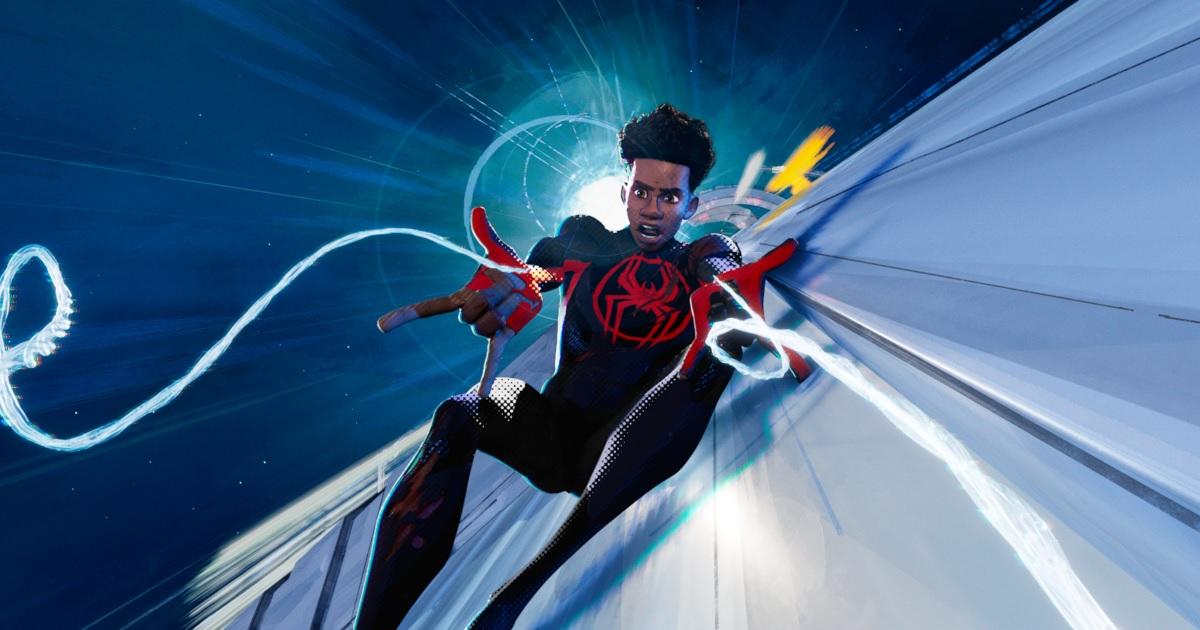'Spider-Man: Across the Spider-Verse': A Fresh Animated Epic That Puts Storytelling Itself on Trial (Review)
Spider-Man: Into the Spider-Verse brought comics book to life, with its blurred production design aping even the dot-printing of comic book pages, in a way no animated or live-action film had done before. With Spider-Man: Across the Spider-Verse, the Sony Pictures Animation team goes into an even further extreme, putting the very story tropes that lead every incarnation of Spider-Man to become the friendly neighborhood webhead of their world on trial. They created another audacious animated epic that deepens the emotional weight of the first film, even as the script nearly collapses under its complications.
Across the Spider-Verse picks up months after Into, with Miles Morales (Shameik Moore) feeling alone and abandoned on his Earth. Sure, he's a popular Spider-Man, but Gwen Stacy (Hailee Steinfeld) and the other Spider-people he befriended are nowhere to be found. He grows overconfident as Spider-Man, leading to him brushing off the real danger The Spot (Jason Schwartzman) poses as a villain who can create interdimensional portals. However, Miles' home life still isn't smooth, as his dad Jefferson (Brian Tyree Henry) and his mom Rio (Luna Lauren Vélez) continue to be overprotective.

Gwen soon shows up and Miles learns about the Spider-Society, a team of Spider-people put together by Miguel O'Hara/Spider-Man 2099 (Oscar Isaac) to correct multiverse anomalies. Miles thinks the focus is on stopping The Spot, but he soon learns a horrific truth about the real anomaly in the universe.
It's here where Across the Spider-Verse goes into plot overdrive. Writers Phil Lord, Christopher Miller, and David Callaham picked up on how convoluted some comic book stories can get, bringing it all so full circle that it winds up being an indictment on storytelling itself. Why do all Spider-people origin stories have to be the same? Can Miles be Spider-Man if he avoids another tragedy in his life? He's out to prove that. This movie is as much about challenging the storytelling status quo as it is about relationships between grown children and their parents.
Directors Joaquim Dos Santos, Kemp Powers, and Justin K. Thompson aren't just expanding on the concepts of Into the Spider-Verse. They also push the limits of what computer animation can do. They certainly lucked out on getting extra time to make the movie, as every element works together to create individual frames that could be displayed as pieces of art on their own. The action scenes are breathtaking, particularly the exhilarating chase sequence in Miguel's world. But the most impressive scenes are moments when characters are simply talking, like a long scene between Miles and his mom. It's not easy creating these moments in animation, where the job is to animate a face and bring to life an emotion. Everyone involved should be praised for taking on that challenge.

Many sequels have tried to go dark, but Across the Spider-Verse succeeds by taking the best lessons from Star Wars: The Empire Strikes Back and Back to the Future Part II and mixing them. It doesn't mean anything to just throw a challenging villain in your hero's path if they aren't forced to reckon with the consequences of their actions. By also going backward and fleshing out Gwen's story, Across can also change the way we see her motives in the previous film. This is what also makes Across unique, as it expands the Spider-Verse franchise by not solely focusing on Miles.
Spider-Man: Across the Spider-Verse builds to such momentum in its last moments that it leaves you breathless. The shocking, and sudden "to be continued" card puts that all on hold, and we can only wonder how next year's Spider-Man: Beyond the Spider-Verse can keep that going. Lord, Miller, and their team can be trusted to do it, especially after Across. Here, they juggle so many elements that it's incredible how the whole thing doesn't fall apart. It's a movie that dares to challenge the art of storytelling itself. This is more than just a great Spider-Man story. It's a great story about writing your own destiny, no matter what the "canon" says.